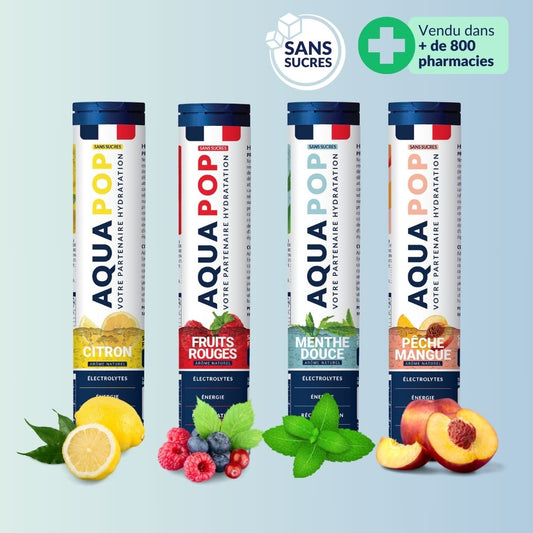Water is much more than just a way to quench your thirst. It plays a crucial role in every stage of digestion, and has a direct impact on the health of your digestive system. Drinking enough not only helps to break down food, but also enables better absorption of nutrients and ensures the smooth functioning of your intestinal transit. Adequate hydration can even prevent disorders such as constipation, often linked to a lack of water.
Water: a key player in digestion
As soon as you start eating, saliva, which is mainly composed of water, is produced to facilitate chewing and the passage of food down the esophagus. When food reaches the stomach, water also helps by diluting gastric juice, enabling nutrients to be broken down more efficiently. This enables the digestive enzymes to do their job more efficiently, and the food is ready for the next stage of digestion.
Then, in the small intestine, water comes into play to facilitate nutrient absorption. Nutrients such as carbohydrates, proteins and fats are dissolved in water, making it easier for them to pass through the intestinal wall and enter the bloodstream. If your body is dehydrated, this absorption becomes more difficult, and certain nutrients are less well assimilated, which can affect your overall health.
Hydration and intestinal transit: an essential relationship
One of the best-known roles of water in digestion concerns intestinal transit. For stools to pass easily through the colon and be eliminated, they must contain sufficient water. If you don't drink enough, the body withdraws more water from the colon, making stools harder and more difficult to evacuate, leading to constipation.
Lack of hydration can also lead to bloating, abdominal cramps and feelings of discomfort. On the other hand, when the body is properly hydrated, the digestive process is smoother, and you feel lighter and more energetic after your meals.
Hydration: how to optimize your digestion
Drinking water throughout the day is crucial to maintaining a good water balance in the body. Contrary to what you might think, it's better to drink regularly than to consume large quantities of water all at once, especially during meals. This keeps the body hydrated without overloading the digestive system.
In addition to water, water-rich foods such as cucumbers, zucchinis and citrus fruits are excellent supplements for improving hydration and digestion. Herbal teas, especially after meals, can also stimulate the digestive system while providing additional hydration.
In certain cases, such as after a particularly heavy meal or when digestion is difficult, electrolyte-enriched solutions can provide a helping hand. AQUAPOP, for example, with its sugar-free, electrolyte-rich formulation, helps to effectively restore fluid balance while supporting digestive health. It is convenient, low in calories, and can be used regularly to promote good digestion.
Why hydration is essential for intestinal health
Gut health is often linked to diet, but hydration is just as important. Water imbalances can lead to chronic digestive disorders such as irritable bowel syndrome or bloating, affecting not only digestion, but also mood and energy. What's more, by ensuring proper hydration, you promote the regulation of intestinal bacteria, which play a crucial role in digestion and overall well-being.
When you maintain optimal hydration, you enable your digestive system to function efficiently. This facilitates the elimination of toxins, aids weight management, and supports your overall intestinal health.
Water is a fundamental element in ensuring smooth, efficient digestion. It is involved at every stage, from breaking down food to eliminating waste. To preserve your digestive health, make sure you hydrate regularly throughout the day. If you need more, solutions like AQUAPOP can reinforce this balance by providing the necessary electrolytes. Proper hydration is the key to a healthy digestive system and overall well-being, whatever the season or circumstances.




